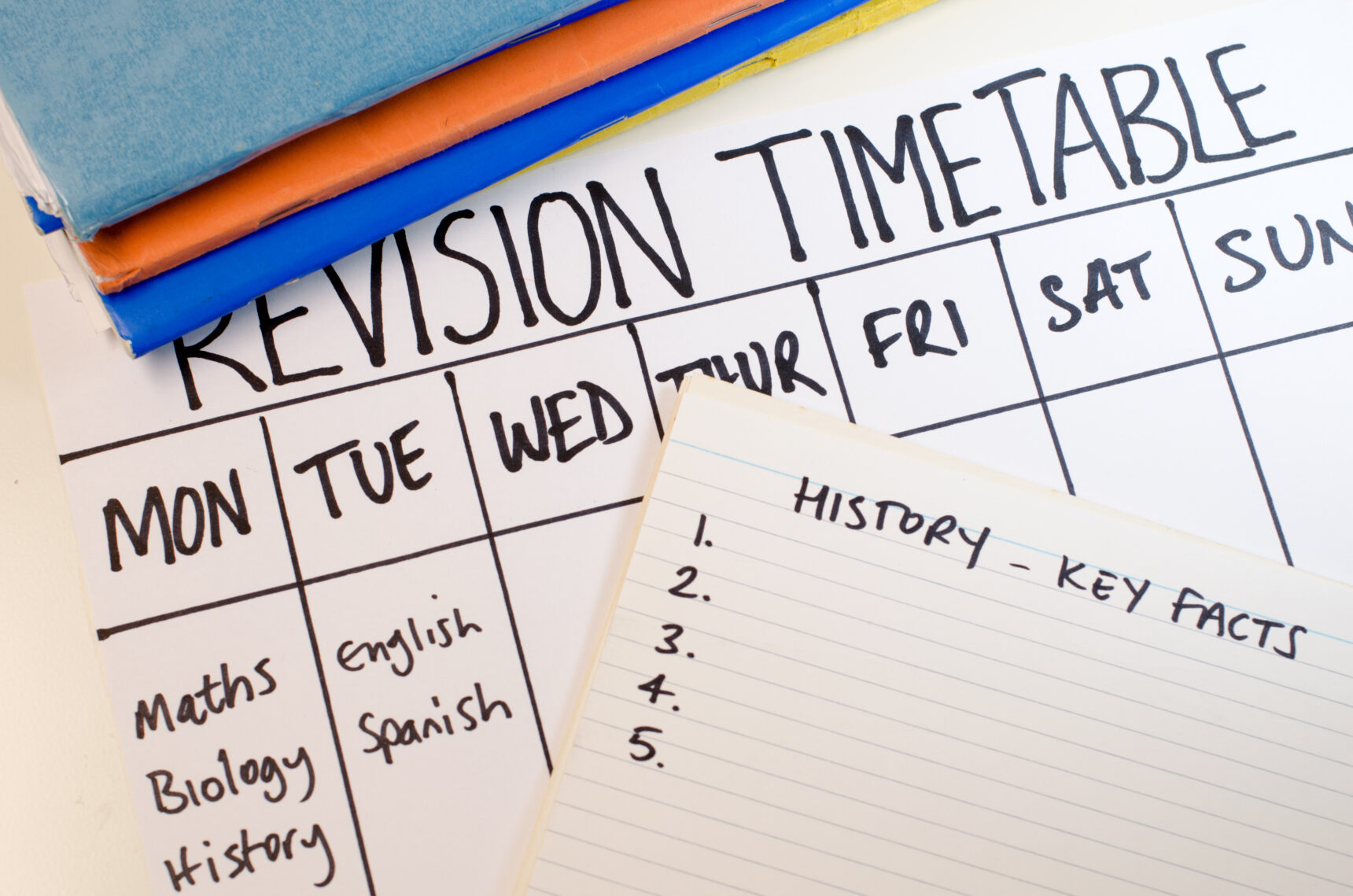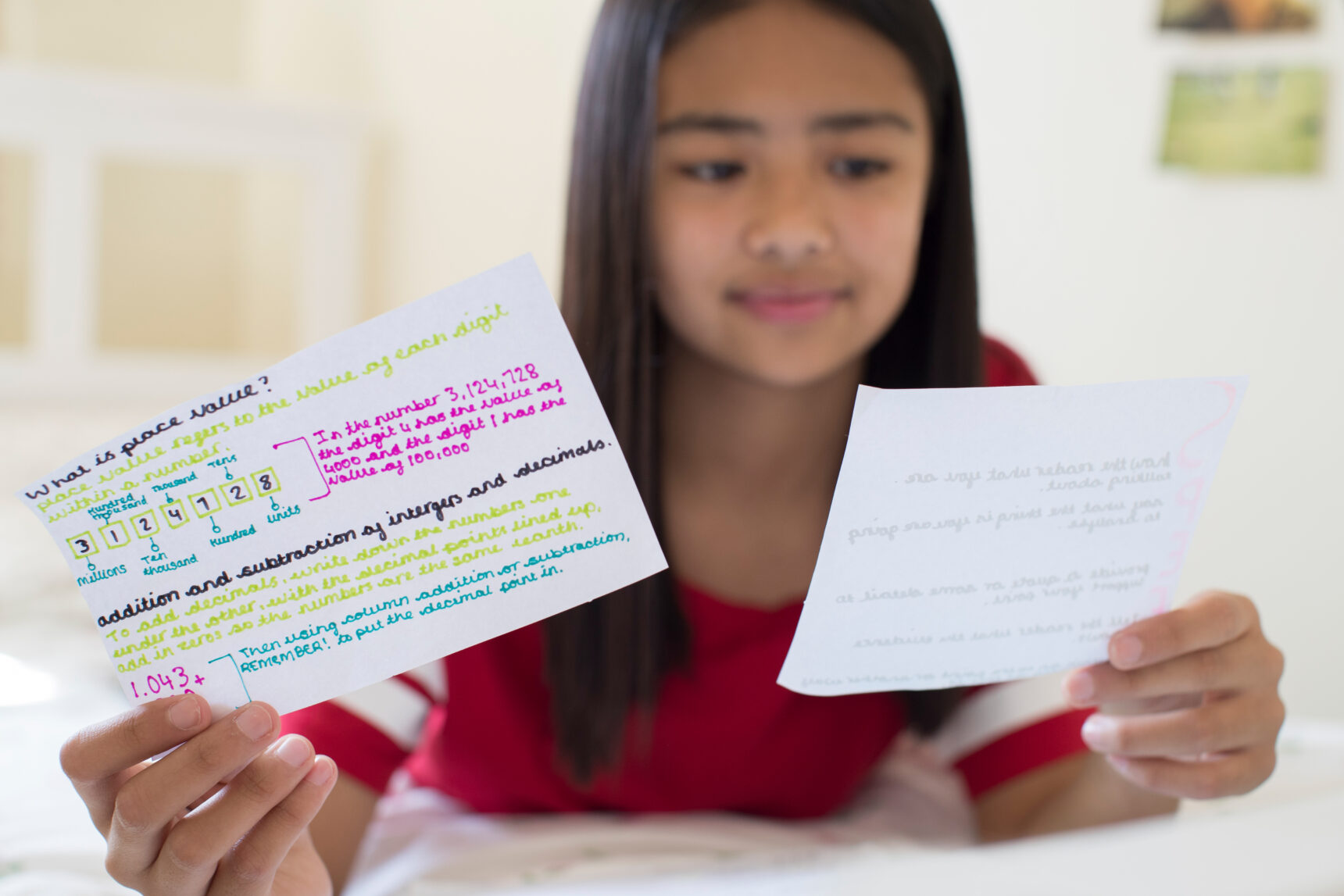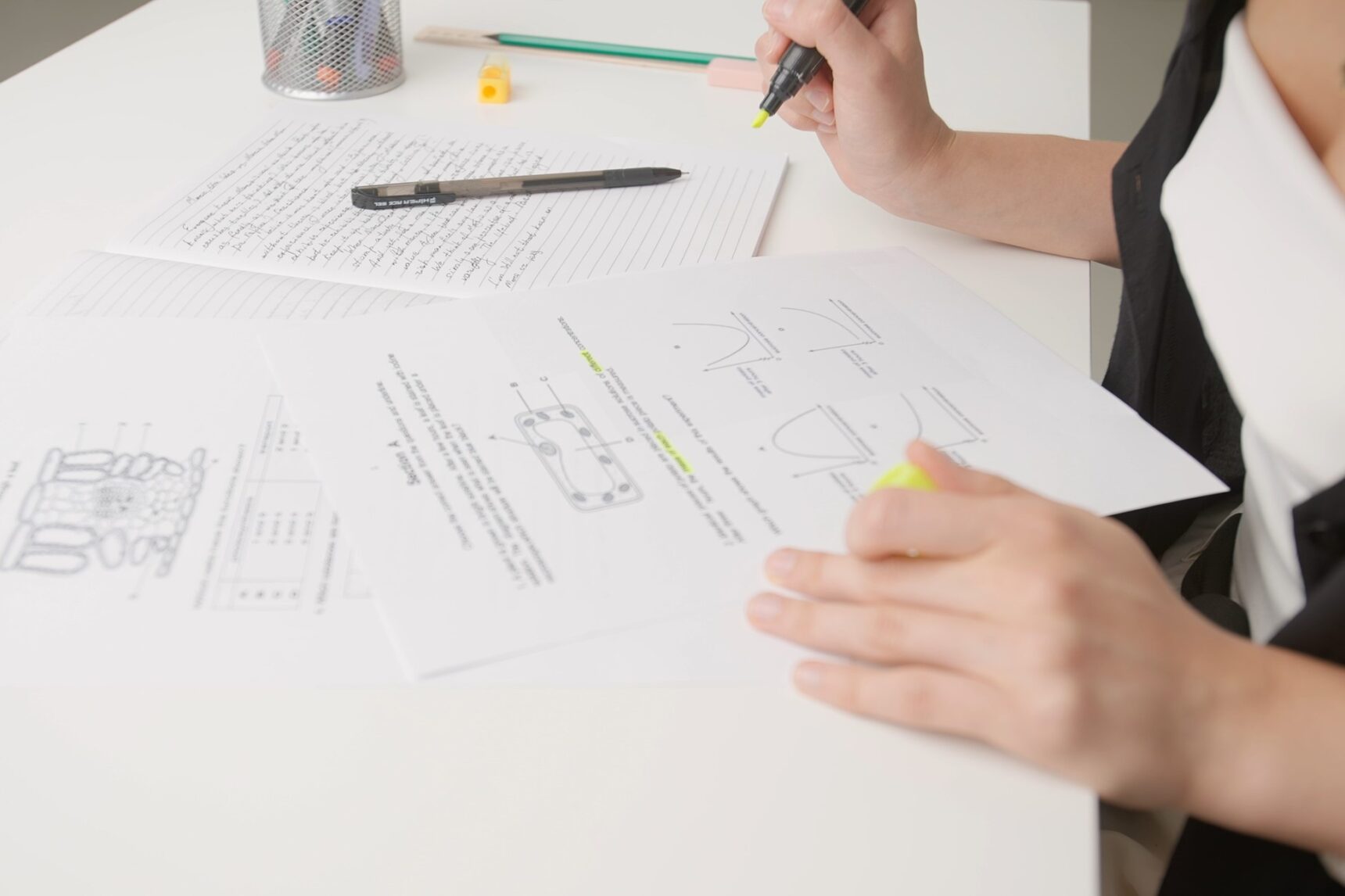Contents:
Let’s face it—revision can feel overwhelming. With a mountain of content to cover and exams fast approaching, the pressure can quickly build up. But here’s the good news: how you revise is more important than how much you revise.
Whether you’re preparing for your GCSEs or A Levels, knowing how to revise effectively can make a real difference. Here are 10 practical tips to help you make the most of your study time and walk into your exams with confidence.
1. Get organised!
Getting organised from the start can make revision feel far less overwhelming. A tidy workspace, a clear plan, and realistic goals all help to make your study sessions more focused and productive.
- Start early and plan ahead: It goes without saying that leaving revision to the last minute isn’t a good idea. Cramming might feel productive in the moment, but it’s not the most effective way to learn. Starting early and spacing out your revision helps your brain retain information more effectively and keeps stress levels lower.
- Know your exam spec: Your exam specification (or “spec”) is essentially your revision roadmap. It tells you exactly what topics you need to know and what could come up in the exam. You can find specs on your exam board’s website—just make sure you’re using the correct and most up-to-date version for your course.
- Make a revision timetable: A solid revision timetable turns a mountain of work into manageable steps. By planning your time in advance, you can make sure every subject gets covered, include breaks to avoid burnout, and stay on track. Need help getting started? Check out our guide to making a revision timetable.

- Prioritise tricky topics: It can be tempting to revise easier topics first and put off the ones you find more difficult until later. However, this risks not having enough time to get to grips with more challenging content and seek support if needed. You also don’t want to ignore the subjects you’re confident in, so aim to strike a balance—mix easier and harder topics into each study session for more effective revision.
- Organise resources and materials: Spend some time organising your revision notes, flashcards, and other resources so you’ll have everything on hand when needed. Use folders with labelled dividers and declutter anything you no longer need. A tidy, well-organised space makes it much easier to concentrate.
2. Choose the right study spot
Where you revise can really affect your ability to concentrate and take in information. A good study space should be quiet, comfortable, and free from distractions—ideally, somewhere you associate with learning, not relaxing.

Natural light, a tidy desk, and easy access to your materials (books, notes, stationery) can help you stay productive. Try to avoid studying in bed or in noisy, busy areas, as these can affect your concentration and motivation. If home is too distracting, consider heading to your local library, a quiet café, or a designated study area at school. Everyone works differently, so experiment to find an environment that helps you feel focused, calm, and in the zone.
3. Practice active recall
Reading notes over and over usually isn’t enough if you want to revise effectively and actually absorb what you’re learning. Instead, use active recall—a technique where you test yourself on what you’ve learned. Active recall is one of the best ways to revise because it forces your brain to retrieve information, strengthening your memory.
Try these active revision ideas:
- Flashcards: Flashcards (with a question on one side and the answer on the other) are a great way to test your knowledge. Writing out your own flashcards helps to consolidate knowledge, or you can use apps like Anki or Quizlet to create digital versions. Physics & Maths Tutor also has ready-made flashcards organised by subject and topic.

- The blurting method: Blurting is a simple but effective active recall technique that helps you identify gaps in your knowledge. Start by studying a topic from your notes or a textbook, then cover everything up and write down as much as you can remember—the “blurt.” Once you’ve finished, compare what you wrote with your original notes and highlight anything you missed or got wrong.
- Teaching others: One of the best ways to test your understanding is by trying to explain a topic to someone else—a friend, family member, or even yourself! The Feynman Technique involves breaking down complex ideas into simple, clear explanations as if you were teaching a beginner. If you get stuck, it’s a sign you need to review that part of the topic again.
- Practice questions and quizzes: Practice questions are a brilliant way to apply your knowledge and get used to exam-style formats. Physics & Maths Tutor provides past exam questions organised by topic. Likewise, quizzes—whether self-made, from revision guides, or online platforms—help reinforce what you’ve learned and make active recall feel more fun and interactive.
4. Use spaced repetition
Spaced repetition is a tried-and-tested technique you can use when learning how to revise effectively. It helps move information from your short-term to long-term memory. You review the same material at gradually increasing intervals—for example, after one day, then three days, then a week.
For the ultimate revision combo, you can combine spaced repetition with active recall. For example, the Leitner System combines spaced repetition with flashcards. You sort your flashcards into boxes, each of which has a different review frequency, in order to focus more regularly on the flashcards you find difficult.
You can set this up yourself using physical flashcards and a set of boxes, or use an app like Anki, which automatically schedules your reviews based on how well you know each card.
5. Avoid digital distractions
Part of learning how to revise effectively is learning to minimise distractions so you can stay focused and make the most of each study session. Digital distractions—especially phones and social media—are some of the biggest challenges to tackle!

Try putting your phone on Do Not Disturb or Aeroplane Mode, or leave it in another room while you study. You can also use apps like Cold Turkey or Freedom to block distracting apps and websites.
Forest is another useful (and fun!) app that can help you focus. At the beginning of your study session, you plant a virtual tree—but if you leave the app to check messages or go on social media, the tree dies. Stick with it, and you’ll grow a whole forest that shows how focused you’ve been.
Check out our article on the best revision apps for more of our favourites.
6. Get visual
If you’re a visual learner (or just bored of staring at notes), using diagrams, mind maps, and posters can be a game-changer.
- Mind maps are great for showing how different topics link together, especially for subjects like science or history. Create your own or head to Physics & Maths Tutor for science mind maps you can print at home. You can also purchase printed copies from the PMT Shop.

- Creating colourful posters with key facts, formulas, or quotes can help you remember tricky content—plus, putting them up around your room means you’ll see them regularly. Remember to prioritise substance over style so you don’t spend too much time creating them!
- You can also use sketches, diagrams, and flowcharts to break down complex ideas into something more visual and memorable.
7. Practice past papers and predicted papers
One of the absolute best ways to revise for exams is to sit past papers under exam conditions. Make sure you won’t be interrupted, and set a timer for the amount of time the exam board has allocated to the paper.
This will help you:
- Understand exam paper formats and question styles
- Manage your time during real exams
- Identify gaps in your knowledge
Past papers
You can find past papers on Physics & Maths Tutor as well as on the official exam board websites. After completing a paper, you can use the marking scheme to mark your answers and review any mistakes.

Mark schemes and examiners’ reports
Mark schemes are incredibly useful for understanding how marks are awarded and what examiners are really looking for. When you practise past papers, use the mark scheme to check your answers—not just to see what you got right, but to understand the marking criteria and find out where and why you’re losing marks.
Examiner’s reports go one step further: they highlight common mistakes students make and explain what separates a top answer from a weaker one. Reading them gives you insider insight into how to avoid pitfalls and maximise your marks.
Predicted papers
Predicted papers are also a great way to test your knowledge, as they give you a realistic idea of the types of questions that might come up. Visit PMT Education’s Predicted Papers Hub to explore our predicted papers for a range of GCSE and A Level subjects and exam boards.
8. Take regular breaks
Trying to revise for hours without a break might feel productive, but your brain needs rest to stay focused and absorb information. Taking short, frequent breaks helps prevent burnout and keeps your concentration levels high.
One popular method is the Pomodoro Technique: you work for 25 minutes, then take a 5-minute break. After doing this for four cycles, take a longer break of 15–30 minutes. Use your breaks to stretch, grab a snack, or step outside—anything that helps you recharge.

9. Look after yourself
It’s not just taking regular breaks that’s important. You need to look after yourself in other ways, too. In fact, taking care of yourself is one of our top tips for how to revise effectively. When you feel physically and mentally well, you’re far more likely to stay focused, motivated, and actually retain what you’re learning.
Make sure you’re:
- Sleeping well
- Staying hydrated
- Eating healthy meals and snacks
- Getting some exercise and fresh air
- Making time to socialise with friends
- Setting aside time for relaxation
10. Ask for support
If you’re struggling with a tricky topic or feeling anxious about an upcoming exam, don’t hesitate to reach out for help.
Whether it’s a teacher, friend, or family member, simply talking to someone about how you’re feeling can make a big difference. They might also be able to offer advice, explain something in a new way, or just give you the encouragement you need to keep going.

Revising for exams isn’t always easy, but with the right strategies, it can be manageable—and even rewarding. By staying organised, using proven techniques like active recall and spaced repetition, and looking after your wellbeing, you’ll set yourself up for success.
Learning how to revise effectively isn’t about doing more; it’s about doing what works. Everyone learns differently, so try out different techniques to discover what works best for you.







Comments